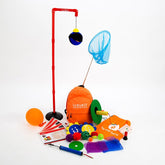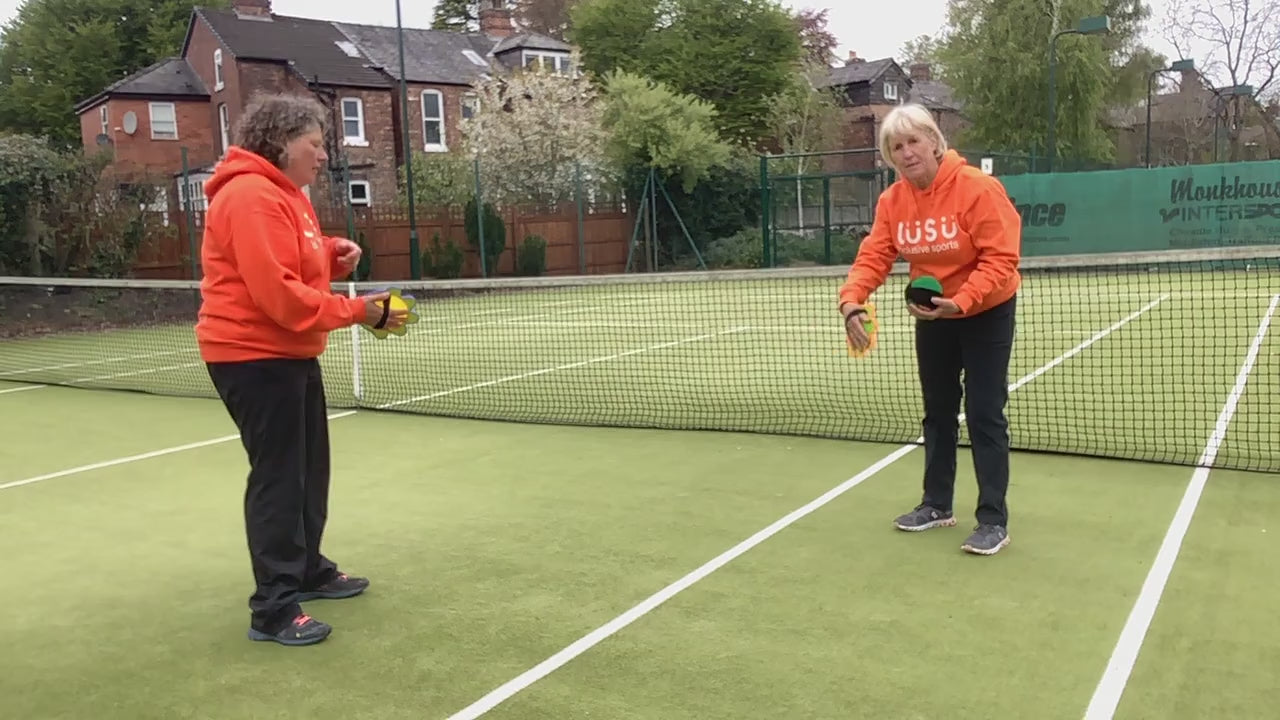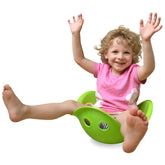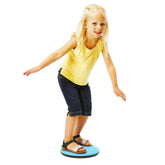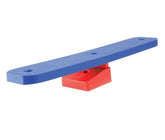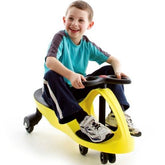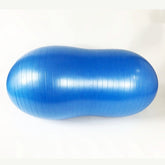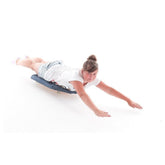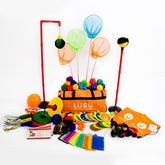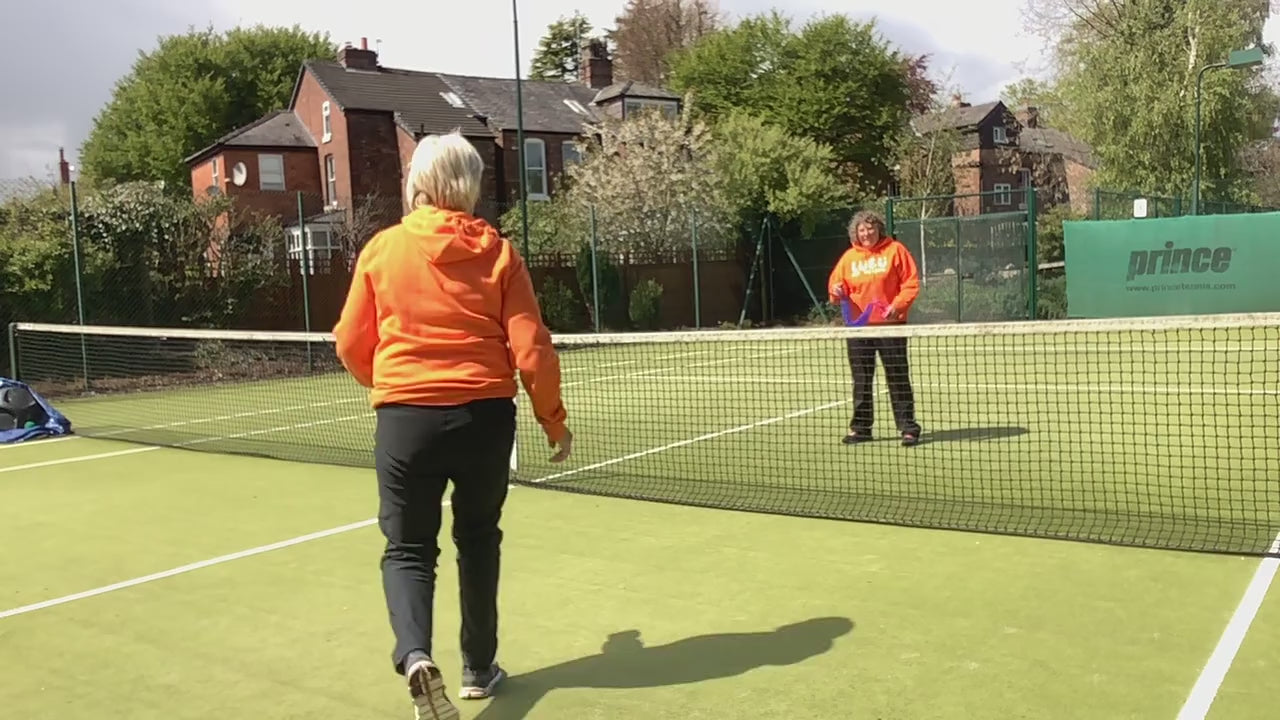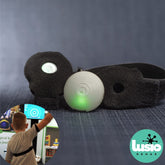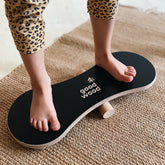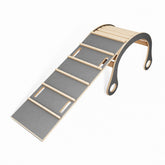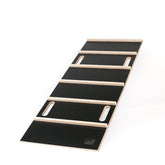Exercise & Dance Products for Disabled People & SEN
We have a range of products that help children get moving. Ideal to help improve gross motor skills and balance. This collection has been created to provide products enabling children with disabilities to be included in a number of fun activities that involve movement. Whether it is joining in dance classes or taking part in blind football to name just two things. Movement helps children to regulate emotions and these items make that enjoyable at the same time. Scroll down to read more about how research has shown that exercise and movement can help children with autism improve their physical, emotional, and social well-being.
Filter
27 results
30
- 10
- 15
- 20
- 25
- 30
- 50
Featured
- Featured
- Best selling
- Alphabetically, A-Z
- Alphabetically, Z-A
- Price, low to high
- Price, high to low
- Date, old to new
- Date, new to old
Sort
Sort by:
- Featured
- Best selling
- Alphabetically, A-Z
- Alphabetically, Z-A
- Price, low to high
- Price, high to low
- Date, old to new
- Date, new to old
-
Therapy Peanut Ball-Anti Burst - Yellow 35cm
The Therapy Peanut Ball-Anti Burst is ideal for therapeutic use, especially for those who have problems with balance and coordination. The shape of the peanut therapy ball encourages both children and adults to engage core muscles to build strength and improve posture. These...- £25.99 (£31.19 inc VAT)
- £25.99 (£31.19 inc VAT)
- (-0%)
- Unit price
- / per
-
LUSU Inclusive Individual Sports Kit
The LUSU Individual Kit is a fantastic collection of Inclusive equipment designed to encourage sensory development. The kit contains a whole host of bright and innovative products that will set your senses alive. Focusing on the development of co-ordination and sensory stimulation. The kit...- £158.49 (£190.19 inc VAT)
- £158.49 (£190.19 inc VAT)
- (-0%)
- Unit price
- / per
-
Rhythm Dancing 46 Pack
The Rhythm Pack includes a variety of equipment designed to enhance coordination skills within children. Suitable for use during playtime and very popular for sports day events. Excellent value for money bundle. See contents below. Each Kit Contains: 6 Junior Ribbons and Wands 6...- £49.99 (£59.99 inc VAT)
- £49.99 (£59.99 inc VAT)
- (-0%)
- Unit price
- / per
-
TickiT SiliShapes® Sensory Circle Set - Pack size 10
Encourage sensory exploration, language development and gross motor skills with this award-winning TickiT SiliShapes® Sensory Circle Set. Perfect for children with special educational needs or disabilities (SEND), the set includes 5 large textured silicone discs and 5 matching smaller ones – each pair featuring...- £35.49 (£42.59 inc VAT)
£37.49- £35.49 (£42.59 inc VAT)
- (-5%)
- Unit price
- / per
-
Bilibo Rock & Spin Chair
This amazing design offers young children a variety of ways to play. They can sit and wobble on it, pull it along, stand on it, or even wear it on their head! The Bilibo Rock & Spin Chair also provides a sensory spinning experience...- £25.49 (£30.59 inc VAT)
- £25.49 (£30.59 inc VAT)
- (-0%)
- Unit price
- / per
-
Playzone Fit Twist N Spin
Encourages balance and builds core strength while providing countless hours of fun. Use the Fit Twist N Spin during playtime or watching TV for a fun workout! Great accessory to be part of an indoor active play system. Product specifications: Measurement: 25cm diameter. Maximum...- £13.99 (£16.79 inc VAT)
- £13.99 (£16.79 inc VAT)
- (-0%)
- Unit price
- / per
-
EDX Education Whizzy Dizzy
The EDX Education Whizzy Dizzy has a sturdy plastic base that houses a swivelling sitting platform that rotates as children pull on the circular central wheel. Children will be recruiting core muscles as they discover how to coordinate their hands and arms in order...- £95.99 (£115.19 inc VAT)
- £95.99 (£115.19 inc VAT)
- (-0%)
- Unit price
- / per
-
Rocking Balance Beam
This Balance Beam is ideal to work on balance, proprioception and gross motor skills with young children. It is a fun addition to any obstacle course which can allow children to play using their imagination. The balance beam supports children with low muscle tone,...- £23.49 (£28.19 inc VAT)
- £23.49 (£28.19 inc VAT)
- (-0%)
- Unit price
- / per
-
TickiT Basketball Stand
To help improve hand-eye coordination and provide a challenge and reachable goal. Weather proofed so can be used inside and out. Simple self-assembly required. Size: Height 860mm, hoop diameter 400mm. Suitable for children age 3+ Supports the following areas of learning: Physical Development - motor...- £66.99 (£80.39 inc VAT)
- £66.99 (£80.39 inc VAT)
- (-0%)
- Unit price
- / per
-
Didicar - Various Colours
The Didicar is a fun, self-propelled ride-on toy designed to support physical development and encourage active play. With no batteries, pedals or motors, children simply turn the steering wheel left and right to move forward – or flip it to go backwards. Weighing just...- £46.49 (£55.79 inc VAT)
- £46.49 (£55.79 inc VAT)
- (-0%)
- Unit price
- / per
-
Teal
-
Grey
-
Yellow
-
Red
- BlueGreenPurplePink
-
Therapy Peanut Ball-Anti Burst - Blue 65cm
The Therapy Peanut Ball-Anti Burst is ideal for therapeutic use, especially for those who have problems with balance and coordination. The shape of the peanut therapy ball encourages both children and adults to engage core muscles to build strength and improve posture. These therapy balls...- £49.99 (£59.99 inc VAT)
- £49.99 (£59.99 inc VAT)
- (-0%)
- Unit price
- / per
-
Playzone Fit Balance Blox Quad Kit
The award-winning Playzone fit Balance Blox Quad Kit system includes 4 Slackline Blox and four sets of 5ft (1.5m) slackline poles. It comes with a fitting tool and instructions. Product information: Up to 4 children can play or balance as a team. Max weight...- £214.99 (£257.99 inc VAT)
- £214.99 (£257.99 inc VAT)
- (-0%)
- Unit price
- / per
-
Balance Bundle 44 Pack
The Balance Bundle - 44 Pack, is a versatile and engaging resource designed to support children with SEND/SEN/ALN in developing crucial balance and movement skills. This brightly coloured, fun-filled pack is an excellent tool for both individual activities and group play, promoting not only...- £329.49 (£395.39 inc VAT)
- £329.49 (£395.39 inc VAT)
- (-0%)
- Unit price
- / per
-
Auditory Ball Game Pack
This is a great way to teach how to work without the use of vision. The Balls jingle as they roll for an audio sensation as players locate them rolling on the gym floor without the use of their eyes, but now behind blindfolds....- £99.49 (£119.39 inc VAT)
- £99.49 (£119.39 inc VAT)
- (-0%)
- Unit price
- / per
-
Walking Board Pack
A set of 9 PVC blocks in vibrant colours is recommended for working on coordination, balance, and moving along raised surfaces, with sensations felt through the soles of the feet. The blocks are easy to assemble to form a straight line. This helps children to...- £73.49 (£88.19 inc VAT)
- £73.49 (£88.19 inc VAT)
- (-0%)
- Unit price
- / per
-
Jumping Bundle 34 Pack
This jumping Pack contains equipment designed to get children more active and improve their fitness. Jumping and bouncing is a huge part of physical and mental wellness for kids, especially in their growing years. It serves out to be one of the most beneficial and...- £249.99 (£299.99 inc VAT)
- £249.99 (£299.99 inc VAT)
- (-0%)
- Unit price
- / per
-
Large Sensory Skateboard
This large Wooden Sensory Skateboard is recommended especially for the treatment of dyspraxia and for stimulating the vestibular system. The skateboard is cushioned in order to ensure a safe and pleasant therapy session. All edges have been smoothened to lessen the risk of collisions...- £191.99 (£230.39 inc VAT)
- £191.99 (£230.39 inc VAT)
- (-0%)
- Unit price
- / per
-
Standard Sensory Skateboard
This Standard Sensory Skateboard is upholstered with a special fabric pleasant to the touch. All edges are protected to cushion potential collisions e.g. with walls. The skateboard is used for treatment of dyspraxia and stimulating the vestibular system. It is also used for tonic...- £174.99 (£209.99 inc VAT)
- £174.99 (£209.99 inc VAT)
- (-0%)
- Unit price
- / per
-
Dance & Movement 56 Pack
A kit of 56 items to help develop skills and add visual impact and sound to dance and movement activities. In Dance classes we move in all different ways- walking, hopping, jumping and rolling. Using props can get us moving in different ways and gives...- £133.49 (£160.19 inc VAT)
- £133.49 (£160.19 inc VAT)
- (-0%)
- Unit price
- / per
-
LUSU Inclusive Sports Lessons Class Kit
This inclusive sports lessons kit consists of 116 pieces of equipment that will develop a broad range of skills. It is supplied with a set of lesson plans to work in conjunction with the equipment. The kit is fully inclusive and will help the...- £542.49 (£650.99 inc VAT)
- £542.49 (£650.99 inc VAT)
- (-0%)
- Unit price
- / per
-
Movement Pack 52 Pieces
This Movement Pack contains equipment designed to get children more active and improve their fitness. Popularly used for sports day events but also suitable for use during outdoor playtime. See contents below. Each Kit Contains: 6 Ribbons and Mini Wands 20 Ribbon Wristbands 6...- £122.49 (£146.99 inc VAT)
- £122.49 (£146.99 inc VAT)
- (-0%)
- Unit price
- / per
-
LusioMATE
LusioMATE is a physical therapy ecosystem app with wearable sensors. The sensors attach to any part of the body and connect via bluetooth to an ever growing number of FUN exergames created to entertain and motivate Players through their tailor made PT programs. The...- from £1,041.99 (£1,250.39 inc VAT)
- from £1,041.99 (£1,250.39 inc VAT)
- (-0%)
- Unit price
- / per
-
Balance Board - Good Wood
The Balance Board - Unleashing the Power of Play for Gross Motor Skills and Vestibular Sensory Needs. Unleash the Joy of Play with the Balance Board:Watch as your child discovers the thrill of balance and movement with the Balance Board. Unlock their potential for...- £57.99 (£69.59 inc VAT)
- £57.99 (£69.59 inc VAT)
- (-0%)
- Unit price
- / per
-
Black
-
Grey
-
White
-
Wooden Rocker With A Ladder - Good Wood
A swing, a climbing wall, a slide and a balance beam... How does it all fit into one set?The rocker is a veritable mine of creative and developmental play ideas. What happens when you add a ladder to it? You will see how Good...- £488.99 (£586.79 inc VAT)
- £488.99 (£586.79 inc VAT)
- (-0%)
- Unit price
- / per
-
White
-
Black
-
Grey
-
Natural Wood
-
Ladder / Slide- Good Wood
Turn the good wood rocker into a slide, use it to climb the wall or make a balance beam. The good wood ladder is a profiled board with rungs on one side. The other side is smooth and serves as a slide. The rungs...- £199.99 (£239.99 inc VAT)
- £199.99 (£239.99 inc VAT)
- (-0%)
- Unit price
- / per
-
White
-
Black
-
Grey
-
Natural Wood
-
Rocker - Good Wood
The Good Wood Rocker is pure joy and an unfettered gateway for your child's development. Close the eyes and vision a ship on rough water, a spaceship or a bridge to a lost world. Add the additional modules to the Good Wood Rocker and...- £289.99 (£347.99 inc VAT)
- £289.99 (£347.99 inc VAT)
- (-0%)
- Unit price
- / per
-
White
-
Black
-
Grey
-
Natural Wood
-
Body Rocker
Discover the ultimate relaxation experience with the Body Rocker, a delightful and friendly smiley-shaped chair thoughtfully designed to bring you hours of soothing comfort and vestibular stimulation. This unique chair is not just a place to sit; it's a haven for self-soothing and sensory...- £314.99 (£377.99 inc VAT)
- £314.99 (£377.99 inc VAT)
- (-0%)
- Unit price
- / per










